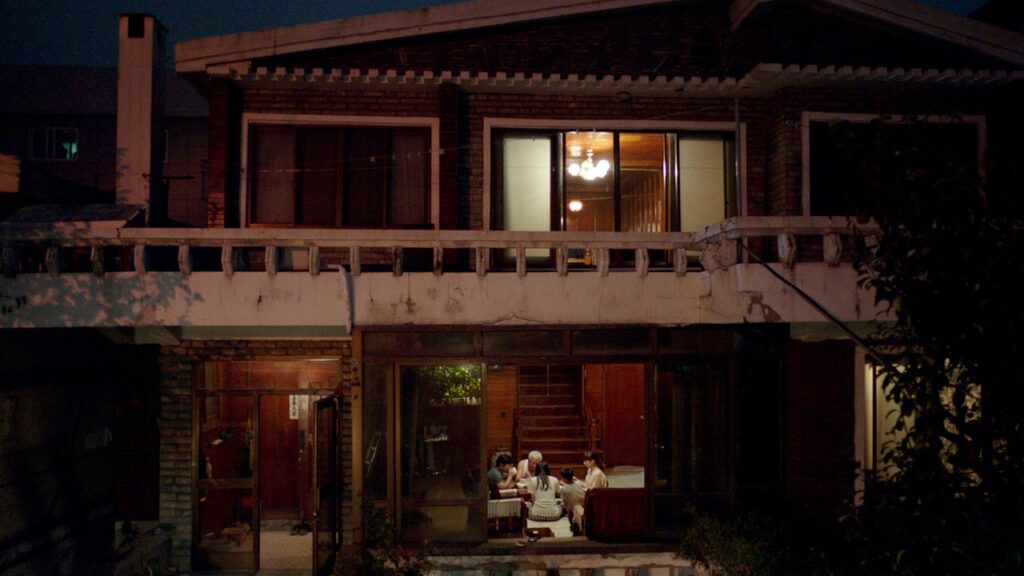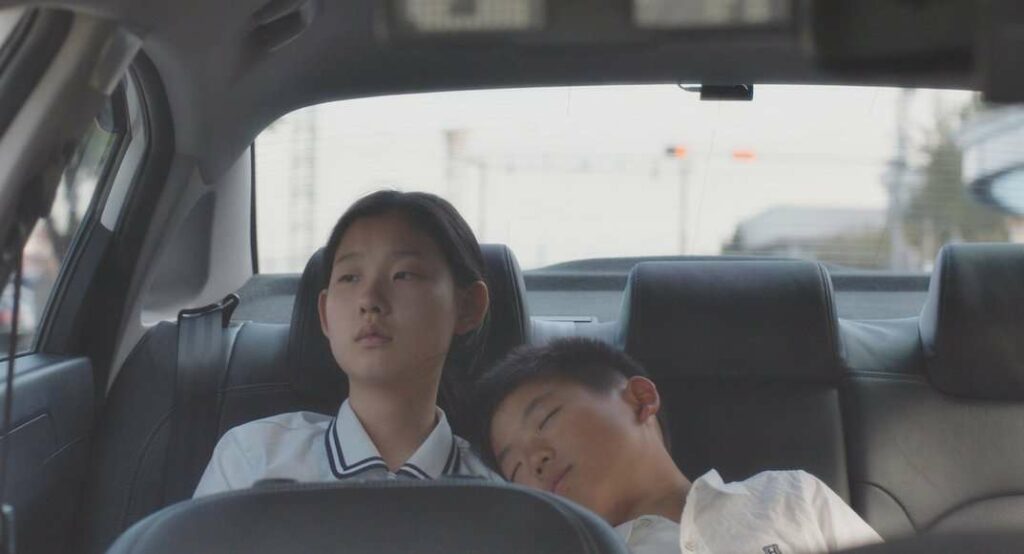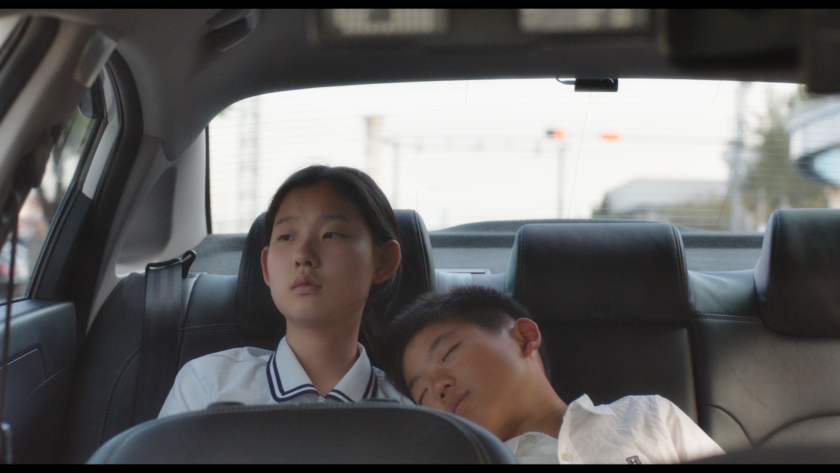London Korean Film Festival returns for its 15th edition. From new releases to hits from renowned Korean directors, the Film Soc Blog reviews a selection of films showing at this season’s festival.
Bryn Chiappe connects Moving On to the contrasting highs and lows of a dysfunctional family dynamic.
Moving On is a film with a very simple concept that manages to be about most, if not all, of the human experience. The universality of the story and maturity with which it is told is especially striking when it is considered that this is writer-director Yoon Dan-bi’s feature-length debut, beginning as her graduation project from Dankook University’s Graduate School of Cinematic Content.
The film follows a tiny cast of five in extreme depth. Functioning as an opportunity to support the fading patriarch of the family and provide his children with a reasonable home, single father Byunggi takes his teenage daughter Okju (the closest we get to a central character) and young son Dongju to stay at their grandfather’s house over the summer. Byunggi’s financial instability underpins the story and makes his initial motivations for staying with his father become blurred between responsibility to the man who raised him and necessity to keep his children sheltered. Just as we’ve become familiarised with the house and the extent of the grandfather’s frailty, Byunggi’s sister Mijung enters the story. A few years behind him in terms of their divorce sagas, she is still technically married but also staying in the house in a way that begs the question of whether it is a charitable visit of familial loyalty or an avenue for free accommodation amidst her marital home being dissolved.

This is a film defined by the contrast between distance and intimacy. Okju is regularly seen wearing a t-shirt emblazoned with the message: “Love is so short / Forgetting is long”. It’s one of many devices that reinforce the importance, and impossibility, of living in the present moment. Yoon Dan-bi’s directoral style is one that thrives on detachment and forces the viewer out of the impulsive, emotional instants that the family inhabits. The camera rarely moves and keeps a distance that positions the audience as very much that – an audience. By watching from a distance, we get the sense of reflection and objective perspective that we are constantly reminded is missing from our own familial relations.
It’s a sad paradox we are presented with of the dual awareness that life passes one by in a stream of actions defined by instinct and passion and the fact that it therefore can’t provide the necessary space for considering the true value of events Especially ones which seem mundane until they are thought of with yearning in later years. The influence of Yazujiro Ozu throughout the film is palpable in this brutal dichotomy between nostalgia and the acceptance that it cannot exist in the moment. It’s a point that’s been made before and will always continue to be made in stories (provided that the global population doesn’t turn into enlightened Buddhist monks or become immortal at some point).
Moving On sets itself apart through its ability to push the idea into a more mature stance by evaluating the factors that trigger this in characters from across the scale of age. Byunggi’s poverty and precarious job selling knock-off trainers on the street affords him no choice but to become the pinnacle of stoicism. He is patient with his children and goes the extra mile to take care of his father, but suppresses his emotions to the extent that is required in order to be the provider in his hand-to-mouth lifestyle. The children, on the other hand, exist in the limbo that is their summer holiday and are forced into disassociation by their aimlessness. Of course, the distance from a sense of mortality that comes with youth is also a major factor. It would be silly to depict the experience of an eighteen-year-old and ten-year-old as being identical, but I’m speaking in general terms.

As the title indicates, there is inevitably a death in the family. In the honesty to life that is prevalent throughout the film, the name of the film ensures that we always know where the summer is going to end up – where life always ends up. It is upon the death that the characters (for the most part) are jerked out of their disassociation into a more reflective place. It’s during the funeral that they become the most similar in this sense, but it is also notable how they all react differently. Some adults are wracked with sobs, while others and the children remain dry-eyed. This is not to say that the family are unmoved. It is also not to say that they are all feeling the same things.
I was surprised by how viscerally the funeral scene made me remember my grandmother’s, which was the first one I attended. Between the ages of Okju and Dongju, I saw myself in both of their very different reactions: the child wanting to bring some cheer and consolation to the adults around them in a disorientating role reversal; the adolescent finding the entire affair completely bizarre. Feeling guilt at their lack of tears and hoping that at some point the ceremony of the event would make it feel real, or at least more understandable to a person utterly disconnected from the idea of mortality. I found that the concept of someone dying remained beyond my ability to comprehend for some years, and in a way, it still does. For Okju, the realisation dawns on her after the event. It’s one of many scenes where the family sit and eat together and is preceded by another meal scene at the funeral. These moments encapsulate what works best about the film; the audience feels enough distance to understand the universality of the scene and detect the intense, unspoken intimacy between the family.
It feels strange to write this, but the thing that has stayed with me most since watching Moving On is how refreshing it was to see characters eating on screen and actually eating. They tuck into their food like real people, complete with all the noises that happen around any dinner table. It is a microcosm of everything I enjoyed about Yoon Dan-bi’s style and made me wonder if audibly slurping noodles around a table with people we love is the closest we come to appreciating what we have when we still have it. The importance of food again brings Ozu back into the frame as the invisible sixth character. While this film is not going to assume the canonical status of his work, it’s deeply satisfying to watch a director pay homage without defining themselves exclusively through the lens of another artist. I wouldn’t say that it’s justified to call Yoon Dan-bi the new Ozu, but this is as much a recognition of her having found a deeply unique voice as it is a personal preference for the old master.




